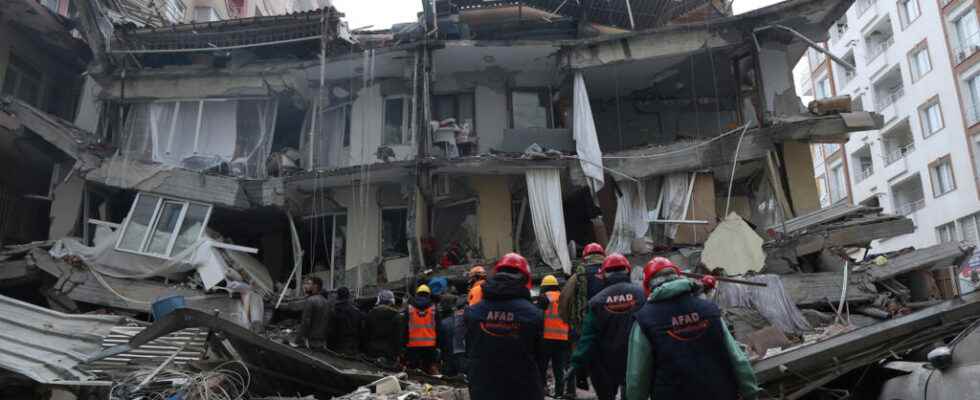As relief workers continue to clear the rubble following the earthquakes that struck Syria and Turkey on Monday, February 6, the international community has mobilized to come to the aid of the two countries.
While the provisional toll reports more than 2,600 dead after the earthquakes that hit Syria and Turkey, the international community reacted quickly, particularly at the request of the bereaved countries. ” Syria calls on UN Member States (…) the International Committee of the Red Cross and other humanitarian groups (…) to support the efforts of the Syrian government to deal with the devastating earthquake the Syrian Foreign Ministry said in a statement.
The European Union (EU) has activated its ” civil protection mechanism » and teams from ten Member States were « quickly mobilized with Romanian and Dutch troops already there. Greece, for its part, promised to put all your strength at your disposal to help Turkey. Athens, which has stormy relations with its neighbor and regional rival, had already announced the dispatch of around twenty firefighters and humanitarian aid.
International solidarity
Another European country plagued by diplomatic tensions with Ankara, Sweden assured through the voice of its Prime Minister Ulf Kristersson that “ as Turkey’s partner and in charge of the EU Presidency “, she was ” ready to offer (his) support “. For its part, the UN has already deployed crews on the spot, according to its Secretary General Antonio Guterres: “ Our teams are on the ground to assess needs and provide assistance “.
I am deeply saddened by the news of the devastating earthquakes in Türkiye & Syria, and offer my heartfelt condolences to the families of the victims.
Tea @A stands ready to support emergency response efforts.
— António Guterres (@antonioguterres) February 6, 2023
The United States, the United Kingdom, but also China, Russia and Ukraine have declared sending aid to the two battered countries.
But on the spot, the rescue conditions are complicated, like in northwestern Syria, where Doctors Without Borders (MSF) is one of the few international humanitarian organizations to be present. The NGO runs a hospital and mobile clinics in the governorate of Idlib, an area controlled by rebel and jihadist groups. MSF was called upon very quickly after the earthquake to help the injured.
Difficult access area
” In Idlib, we have been asked quite a bit by the hospitals that take care of traumas, fractures for staff reinforcements, medical equipment and ambulances. “, explains Hakim Khaldi, head of mission of MSF in Syria, reached by telephone by Murielle Paradonjournalist at the international service of RFI.
MSF is also present in the north of Aleppo, in the region of Azaz, Afrin and Al Beb. And there, it is specific equipment that is missing to treat fractures. ” The problem is finding plaster to heal the fractures. This is what hospitals ask us the most and what we have the hardest time finding at the moment. There is a very high demand and we are trying to solve this shortage of stock “, continues Hakim Khaldi. The north-west of Syria, where many people displaced by war live, remains an area that is very difficult to access for international aid.
International charter
To facilitate the work of rescue teams and coordinate international aid, a charter has been activated: the International Space and Natural Disasters Charter. Launched in 2000, it brings together 17 space agencies and organizations from several countries who organize themselves to make their satellite data available to rescue workers.
” When the charter is activated, we come together to provide spatial data available to the local emergency services, which will need the data to find out exactly where the disaster took place, which cities were affected, where resources must be mobilized. We mobilize a set of satellites with interpretation work to combine the different data and provide information that can be used directly by the emergency services. The charter has been mobilized almost 800 times since its inception, so it is an extremely useful tool for states that are facing these difficulties “, specifies Philippe Baptiste, president of CNES, the French space agency, reached by telephone by Simon Rozejournalist in the France department of RFI.
